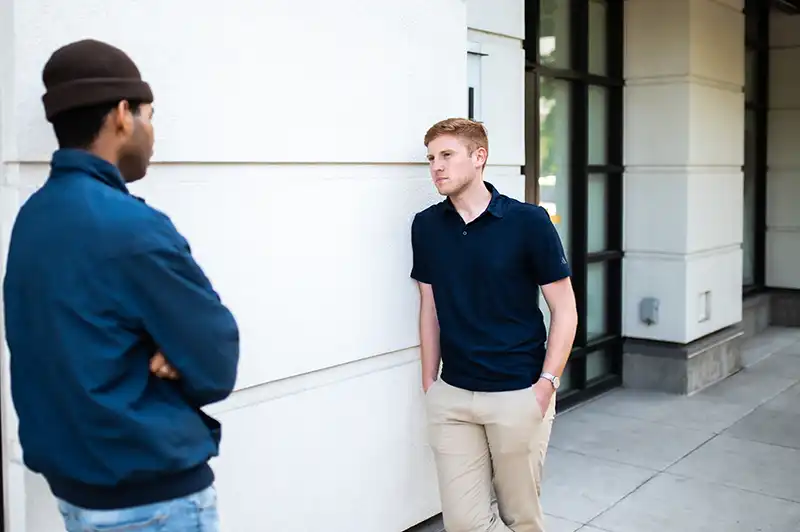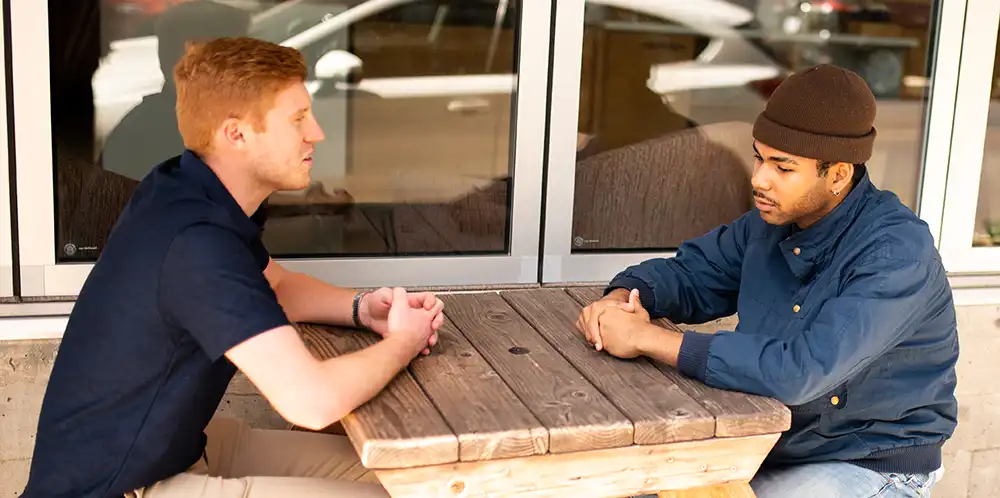Hometown Hero: University of Minnesota alumni transforming lives in Oregon
Minnesota native Noah Gerber is changing the narrative for foster youth in the Portland Metro area. He was raised in St. Paul and pursued a bachelor’s degree in psychology and sociology at the University of Minnesota where his mother is a political science professor there. After graduation, Noah worked at Ellie Mental Health, an outpatient facility for adults and children with psychiatric challenges but soon decided to pivot towards working with older teens venturing into adulthood.
“The young adults I see are eager to make progress and get the help they need to be successful,” he said. “It’s rewarding to see their goals come to life.”
Wanting a change of scenery, he headed toward the Northwest, drawn to the mountains and vast selection of outdoor activities. Two years ago, Noah began his career with Youth Villages Oregon, a leading children’s mental and behavioral health nonprofit, as an Independent Living Program specialist.
Through the Independent Living Program (ILP), young people aged 14 to 23 years old can develop the skills needed to navigate early adulthood without traditional support. Youth aging out of foster care face tremendous challenges compared to their peers, often without crucial guidance or financial stability to become successful in their adult years. Those without support are more likely to fall victim to substance abuse, less than half will have gainful employment by the age of 24, and one in five will face homelessness.
Right now, Noah handles cases for 23 young adults who are transitioning out of the Oregon child welfare system – meeting them at least once a month to work on critical life skills, plans for the future and any other support they might need. Young adults who are in ILP can be in the program until they turn 24-years-old. Throughout his time with Youth Villages, around 25 young people under Noah’s guidance have gone off to college, trade school or are living independently.
Some of the biggest obstacles Noah sees for youth aging out of foster care are the lack of natural support, guidance around goal setting and big picture decision-making skills.
“It can be hard for youth in these circumstances to create goals for themselves and be consistent in creating progress toward that goal,” Noah said. “It’s understandable, since most of them did not have a parental figure helping them along the way.”
Hometown hero helps former foster youth
One young adult who stands out is DJ. He was raised in an unhealthy environment and his father, an alcoholic, had challenges controlling his emotions and was arrested. His mother was nowhere to be found, and DJ and his siblings were placed into state care.
Eventually, he was separated from his siblings, something that can create immense trauma for young people.
“[My father] was arrested in front of us,” DJ said. “I was always jumping around to other foster care homes – I knew my only advocate would be myself.”
Unsure what to do after high school, DJ connected with Youth Villages and was paired with Noah as his ILP specialist. They worked together finding an apartment for DJ, applying for FAFSA and obtaining housing vouchers. DJ says doors started to open for him once he started working with Noah.
I knew DJ would do great things and was determined to be successful in his adulthood years.

Noah encouraged DJ to apply to LifeSet Scholars, a Youth Villages program helping foster youth obtain post-secondary degrees and providing them with educational stipends. Two years later, DJ is now on track to graduate from Portland State University with a degree in economics and business management.
“Noah has done tremendous work for Youth Villages and young people in Portland,” said Andrew Grover, executive director for Youth Villages Oregon. “We are so fortunate to have him.”
In Oregon, Youth Villages serves more than 750 youth and families each year across 12 counties through its community-based programs, operating out of offices in Portland, Salem and Bend. Learn more at www.youthvillages.org.

